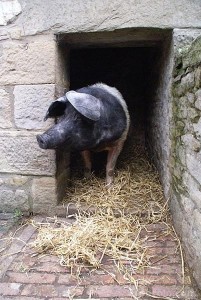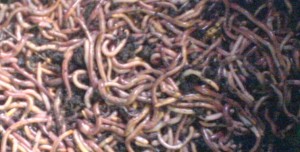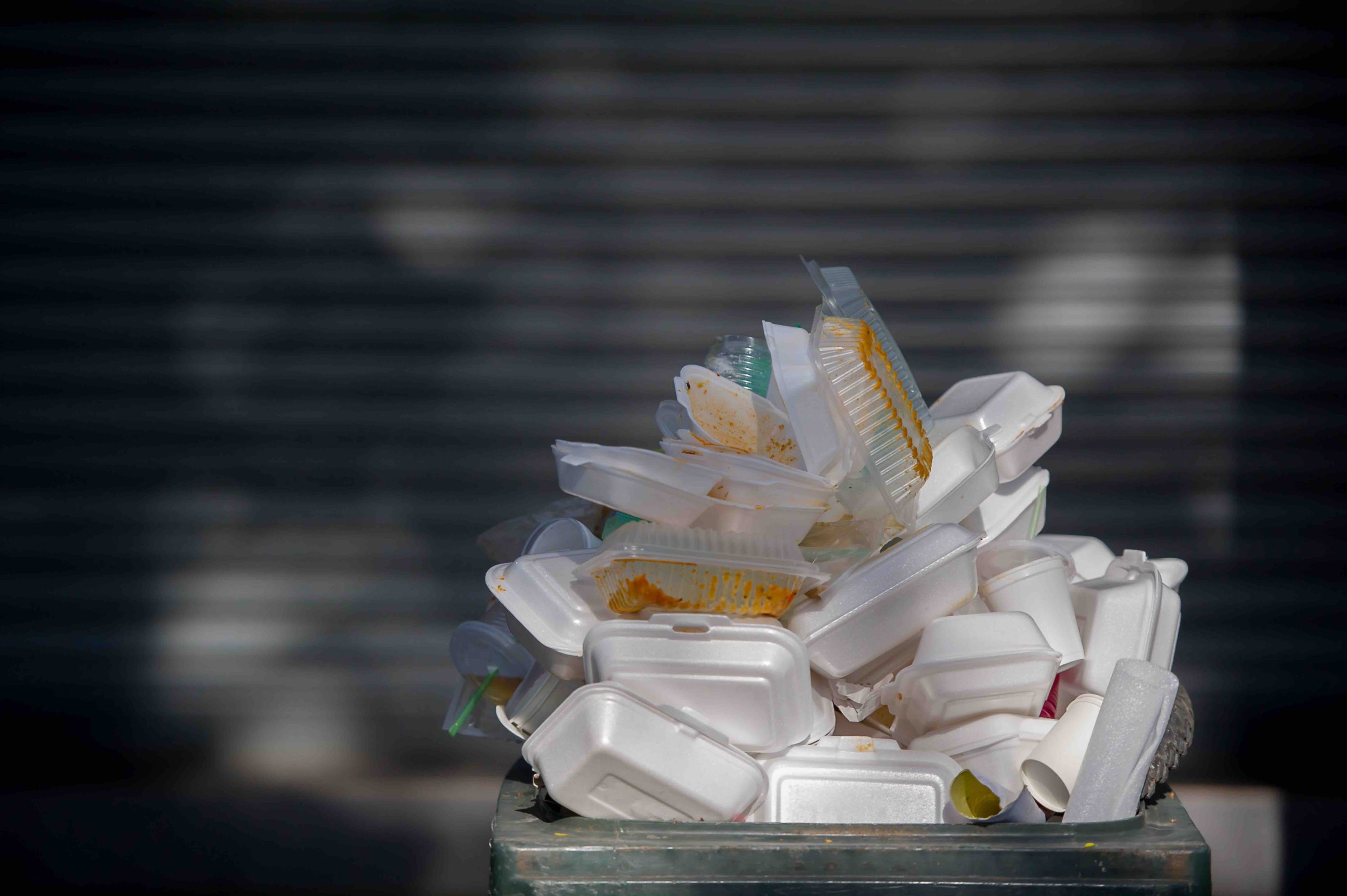Recently, I took a look at how savvy supermarkets are donating unsold food to charity. That’s good, but it’s still not enough. The average household chucks away enough food to sink a fleet of battleships too. MP Richard Benyon MP reckons the average family wastes £50 of food a month!
Hands up everyone who tears up ten pound notes and puts them in the bin. In fact, never mind putting your hands up, just tell me where you are and I’ll come round and take them off your hands. Who can afford to throw that sort of money away? I can’t – can you?
So how about joining the Nina & Co challenge to cut back on your waste? I’m lucky my local council have a food waste collection service. Cooked and uncooked food is taken away for recycling. While I’m all in favour of this, perhaps the answer is to make better use of our precious food resources in the first place. Who knows, if we reduce our waste, perhaps our council tax bills will go down too (you know me – ever the optimist)!

My house was built in the 1800s and in those days, nothing went to waste. The retaining wall of my raised flowerbeds were built from the old pig sty. I was a bit concerned when we first moved there and found millions of bones in the garden. But it turned out that was recycling 19th century-style – not the work of a rampant serial killer.
Composting
OK – we all know we should be turning our vegetable waste into delicious, nutritious compost to feed our runner beans and prize delphiniums, don’t we? But not everyone has room for a compost bin in their garden and it’s more than a bit impractical for a flat dweller. But if composting isn’t for you, perhaps friends or family could take any raw vegetable waste off your hands. I know plenty of allotmenteers and gardeners who can’t get enough of the stuff and regularly collect vegetable waste from their neighbours.
Worms
 (Remember that song?)
(Remember that song?)
If you don’t have room for a compost bin, having a wormery is a good option, and it’s a huge source of entertainment for the kids too. You won’t get a lot of compost, but they’re great for smaller spaces. The compost it does produce is very rich and top quality. But the biggest bonus is the copious amounts of ‘worm wine’ it produces. Simply drain it off and kiss goodbye to that expensive artificial fertiliser. Worm wine is one of the best natural plant foods you’ll ever get – but please don’t confuse it with your favourite Merlot – this is a plants-only tipple.
Green cone food digester
Raw vegetable waste is easy to deal with, but cooked food is a whole different ball game. Cooked food can’t be added to compost. It will attract vermin and make your compost ‘sour’.
But take a look at these natty gadgets if you want to dispose of your own cooked food waste. Green cones literally digest food, and unlike a compost bin or wormery, they work on all food waste including cooked and raw food and even meat bones. A green cone can digest up to a kilo of food waste a day. While you don’t get much in the way of compost from it, they do leach nutrients into the soil. I heard of one gardener who ended up with over 400 courgettes from 5 plants growing next to a green cone!
Cutting down on waste
 Of course, all the composting in the world won’t save us that 50 quid a month Mr Benyon spoke about. What we have to do is stop producing the waste in the first place. It’s not that difficult, but the problem is we have become a throw-away society. Why go to all that effort when we can just toss it in the bin and nip up to Sainsburys for a few more BOGOF specials?
Of course, all the composting in the world won’t save us that 50 quid a month Mr Benyon spoke about. What we have to do is stop producing the waste in the first place. It’s not that difficult, but the problem is we have become a throw-away society. Why go to all that effort when we can just toss it in the bin and nip up to Sainsburys for a few more BOGOF specials?
We need to change our attitudes first. First of all, put a price on every scrap of food you put in the bin. Do that for a month – I dare you! Then multiply it by 12 and work out for yourself just how much money you’re throwing away each year. You could have a pretty good weekend break on that £600.
Cook less
This is an easy option – just cook less if you’re throwing away a lot of cooked food. If the waste is coming from people’s plates, how about using serving dishes and letting people help themselves so they only take what they can eat?
Leftovers
Using leftovers isn’t just about bubble and squeak, or post-Christmas turkey curry. Look online and you’ll find some great recipes to help you make the most of those leftovers. In fact, once you get in the swing of it, you might find your leftovers become even more popular with the family than your ‘first-overs’!
Please take care though and remember to reheat any food thoroughly. I’d hate to be held responsible for you coming down with botulism. For example, you might be surprised to know that rice, however innocuous it might seem, is very dangerous if it isn’t reheated properly.
Shop carefully
If you’re seduced by special offers, you’re not alone. There’s nothing I love better than a good bargain-hunt. But will you really use those three big blocks of cheese? Will all that cereal go soft before it’s eaten?
Of course you can save money by buying in bulk, but you can also throw a lot away too. Stop and think before you’re swayed by that great deal. Will you use it? How quickly do you have to use it? Can you freeze it, pickle it or preserve it to extend its life?
If you can’t stop your bargain hunting ways, join forces with friends or family and share the goodies. That way you can enjoy the thrill of the chase and shop till you drop with a clear conscience, reducing your waste and still saving yourself money.
Gluts in the garden
If you’re a gardener or have an allotment, you might find you have gluts of produce during the season. Instead of wasting it, be creative in the kitchen. Making jams and chutney is great fun and quite easy to do. Home-made preserves knock the spots off anything you’ll find on a supermarket shelf.
 Freeze what you can, and don’t forget your friends and neighbours who will be delighted to help you consume your nature’s bounty. If your fruit trees are laden, perhaps you could advertise it on something like Freecycle. There are plenty of people who will be happy to use your surplus windfall apples and will willingly pick their own.
Freeze what you can, and don’t forget your friends and neighbours who will be delighted to help you consume your nature’s bounty. If your fruit trees are laden, perhaps you could advertise it on something like Freecycle. There are plenty of people who will be happy to use your surplus windfall apples and will willingly pick their own.
Something I’ve recently come across on Twitter is a brilliant new food swap initiative called Apples for Eggs. Anything you’ve grown, raised, or produced yourself (e.g. jam, cakes, etc) can be swapped! Barter is a great way to get rid of surplus fruit and veg and save yourself some money too.
So how about it?
I’m throwing down the gauntlet here. I want you to work out how much money you’re throwing away each year on food that’s never eaten. Then tell us what you’re doing to reduce it and finally, tell us what you’re going to do with the money you’ve saved. But bags I have first dibs in the Jimmy Choo shoe sale!

